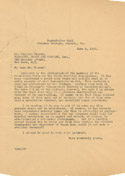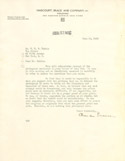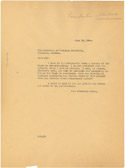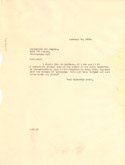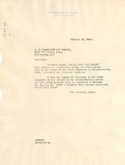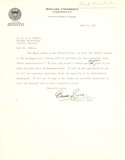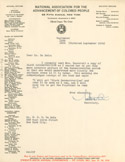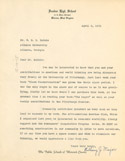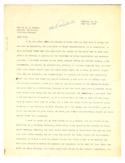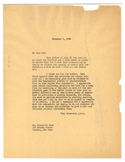
Reconstructing America, Reconstructing History: W.E.B. Du Bois' Vision of the United States after the Civil War
W.E.B. Du Bois (1868-1963) was an activist, scholar, and international spokesman for peace and the rights of oppressed people. His best-known published works include The Souls of Black Folk, The Philadelphia Negro, and the subject of this module, Black Reconstruction, a historical study of the role of African Americans in Reconstruction.
Du Bois wrote and researched Black Reconstruction at the height of the Great Depression, but the book analyses events set in motion sixty years earlier, when slavery was abolished and former slaves became citizens at the end of the Civil War As the finding aid [link] to Du Bois' papers notes, Black Reconstruction “ran directly counter to the predominantly white historiography of the Reconstruction period by emphasizing the contributions of African Americans in the South during the years immediately after the Civil War.”
This collection of letters from the Du Bois papers, housed at the University of Massachusetts Amherst W.E.B Du Bois Library, provide a glimpse of Du Bois' research and writing process, as well as the reception of the book when it was published.
Connect to Credo for more Du Bois digital content
Lesson plan (pdf)
Writing Black Reconstruction
Du Bois began researching Black Reconstruction in February 1931, while working for the NAACP. These letters point to the kind of source material he used, including published collections of government documents. The letters belie the difficulty in obtaining information about late nineteenth-century African American history for a scholar in the 1930s, and suggest negotiations between author and publisher over details like illustrations.
Reactions to Black Reconstruction
The first edition of Black Reconstruction was published in 1935. The study attracted the attention of students, scholars, and the general public, many of whom wrote to Du Bois in praise of the book. These letters are a sampling of reactions from black and white readers.











